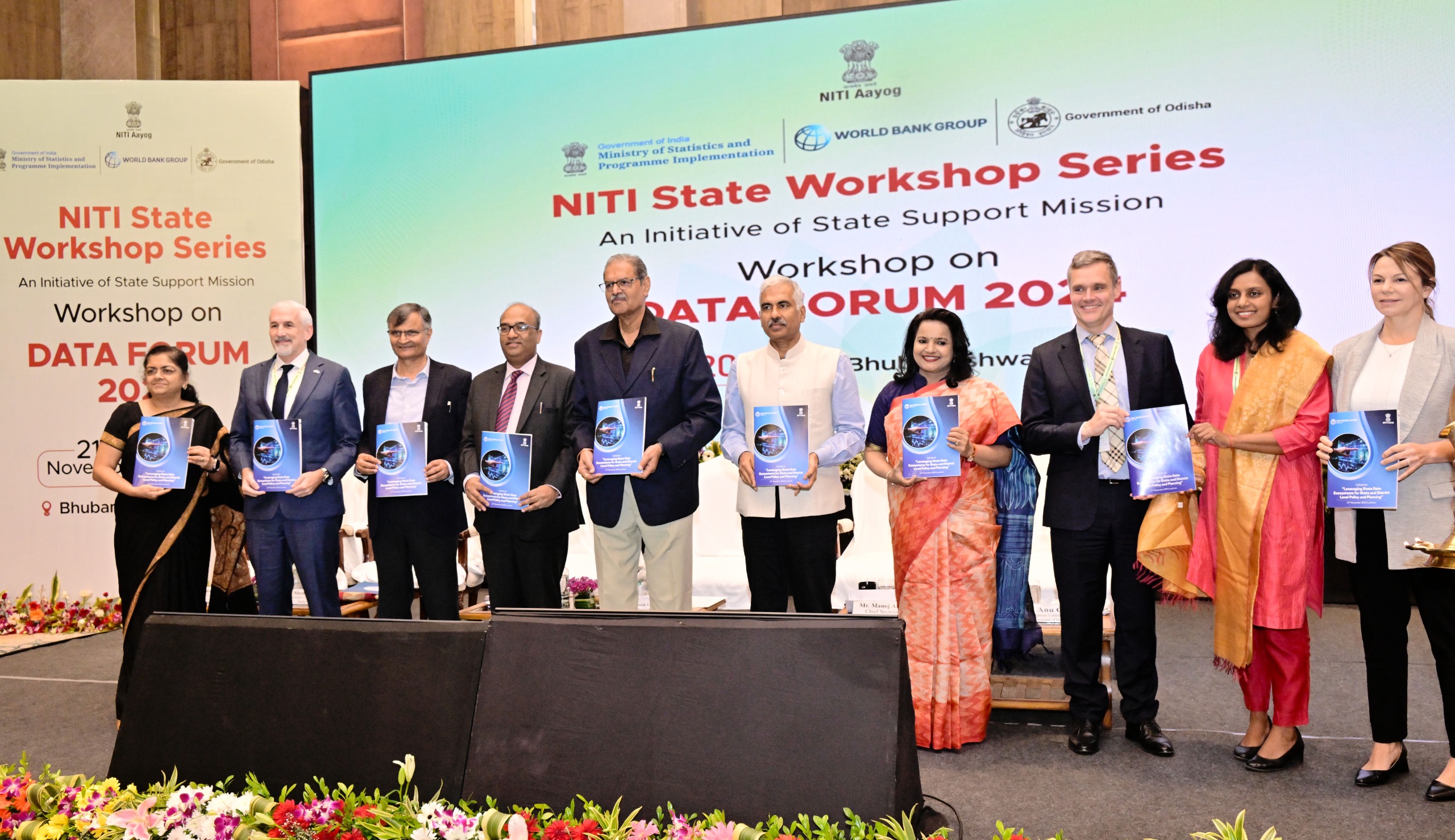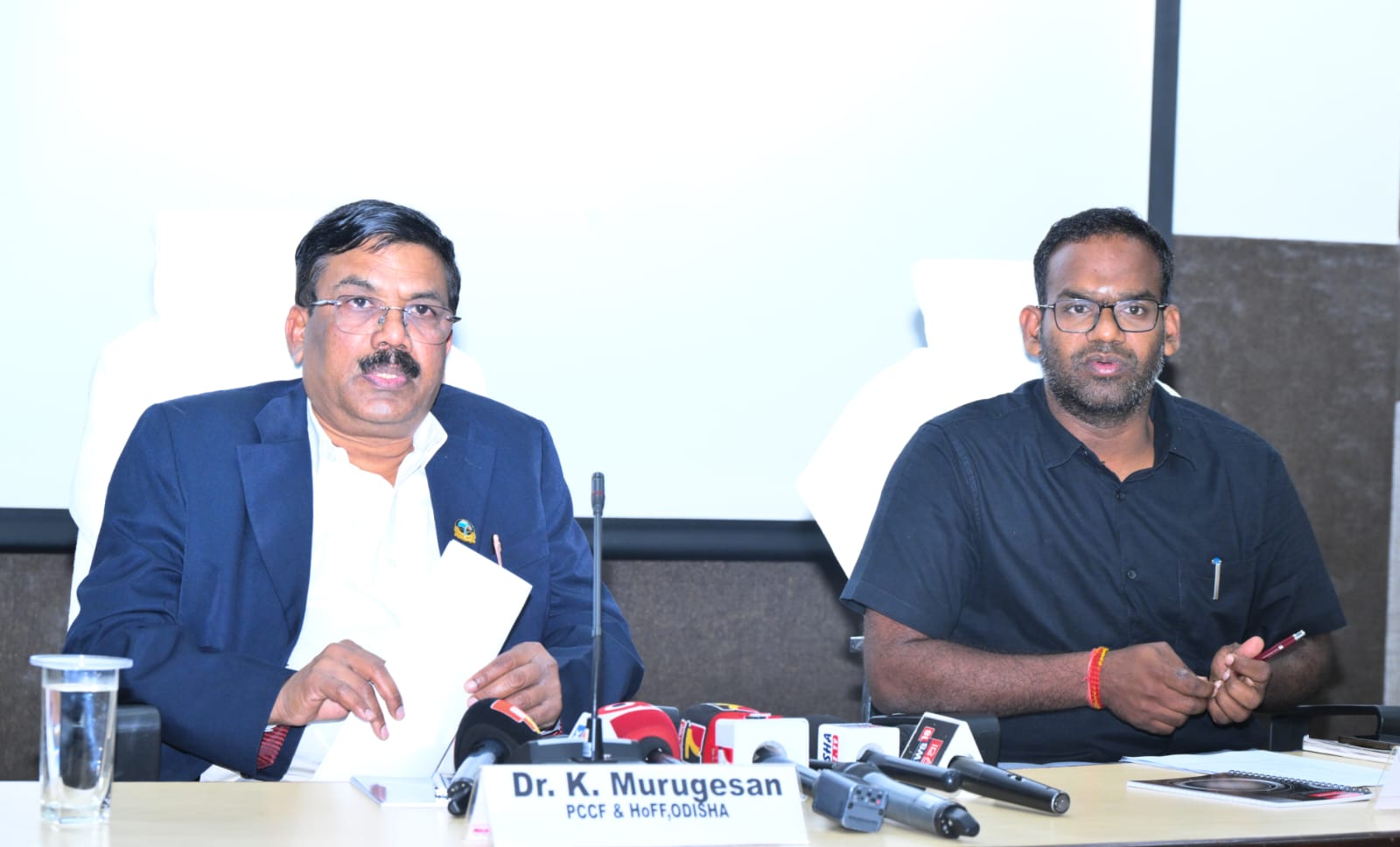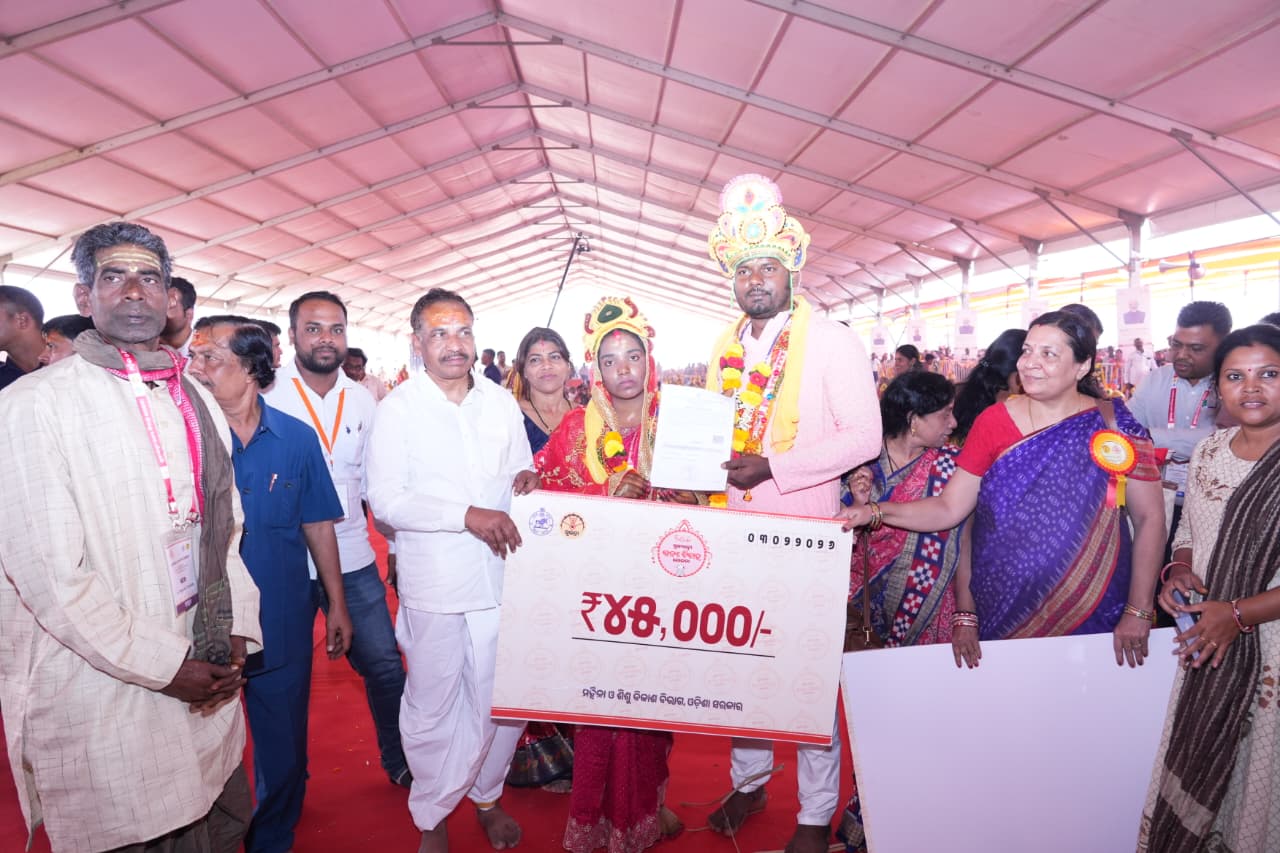Bhubaneswar: The two-day ‘Data Forum-2024’ workshop, organized by NITI Aayog, Ministry of Statistics and Programme Implementation (MoSPI), Government of India, and the World Bank, with support from the Government of Odisha’s Department of Planning and Convergence, commenced today in Bhubaneswar. The event brings together senior officials from various states, Union Territories, central departments, and academics, marking the second event in NITI Aayog’s state workshop series. The first of these workshops took place in Lucknow, Uttar Pradesh, in November 2023.
In his address as the Chief Guest, Kanak Vardhan Singh Deo, Deputy Chief Minister of Odisha and Minister of Agriculture & Farmers Empowerment, Energy, emphasized the critical role of data in enabling informed decision-making. He highlighted how data facilitates effective governance by addressing pressing issues with evidence-based solutions. “When governments and policymakers base decisions on data, we can enhance service delivery, improve transparency, and achieve more impactful results,” Singh Deo said. He also noted Odisha’s vision to become a developed state by 2036 and its contribution to the national goal of ‘Viksit Bharat’ by 2047, stressing that data is essential to achieving these goals.
Singh Deo outlined several initiatives in Odisha to strengthen the state’s statistical systems, including a World Bank-supported project and a new data dissemination policy. He also mentioned the state’s ongoing efforts, such as the Crop Digital Survey, aimed at closing data gaps and improving access to accurate farming data through platforms like the e-Chasa app.
Chief Secretary of Odisha, Manoj Ahuja, further emphasized the need for accurate and accessible data for faster decision-making and development. “Access to real-time data is essential to accelerate Odisha’s growth and contribute to the broader vision of a developed India by 2047,” he said, highlighting how technology can enhance efficiency in governance.
During the inaugural session, Anna Roy, Principal Economic Advisor at NITI Aayog, provided an overview of the Data Forum-2024, emphasizing its importance in strengthening the nation’s data ecosystem. The session also included a panel discussion featuring Shombi Sharp, UN Resident Coordinator in India, and Dr. Ramesh Chand, Member of NITI Aayog, who discussed the expectations for the forum and the importance of robust data systems for the country’s future. Dr. Chand noted that data-driven governance is essential for the country’s development and urged collective efforts to address data inconsistencies.
The first “Data Forum Report 2024” was also released during the session, offering insights into the growing importance of data for governance and development.
On the second day of the workshop, experts from India and the World Bank are scheduled to discuss topics related to creating an enabling environment for data-driven development. The second session, led by Abhishek Singh, Additional Secretary of the Department of Electronics and Information Technology, Government of India, explored the impact of data-driven governance on good governance practices. Singh highlighted the progress made since the first workshop held in Lucknow, focusing on how data governance can drive effective and accountable public administration.
The forum’s sessions also featured discussions on India’s digital public infrastructure and the key factors contributing to a robust data governance framework, including regulatory compliance, organizational culture, technology infrastructure, and stakeholder engagement. These discussions were led by experts like World Bank Task Team Leader Thomas Danieleweitz, former Chief Statistician of Canada Anil Arora, and officials from Tamil Nadu e-Governance Agency and Assam’s Department of Information Technology.
The workshop underscored the transformative potential of data in driving policy decisions and improving governance. In a rapidly digitizing world, reliable and timely data plays an integral role in shaping policies across various sectors, from healthcare to agriculture. As India continues to advance its digital infrastructure, including initiatives like Aadhaar and the UDYAM portal for MSME registration, the ‘Data Forum-2024’ represents a critical step toward fostering a data-driven governance model that can tackle the country’s complex challenges with precision and foresight.
The forum will continue tomorrow with additional discussions on how data can be harnessed to accelerate development and ensure inclusive, sustainable growth.





